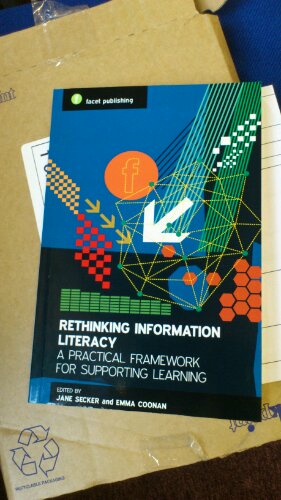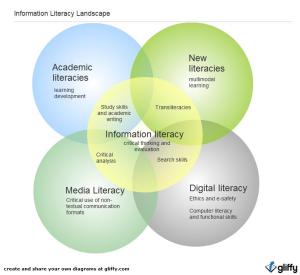Conference season is nearly upon us once again, and Jane and I are delighted to have had a proposal accepted for LILAC 2015. Along with Merinda Kaye Hensley and Sarah McNicol and Emily Shields of MMU, we’ll be giving a symposium on the relevance of IL models and theories to practice. The symposium format means that it should be a highly participatory and hopefully a lively discussion, and I’m very excited to try this new format!
Here’s the abstract:
In recent years there have been an increasing number of IL models and theories developed, for example Inflow (McNicol, 2014), ANCIL (Secker and Coonan, 2014), and the revised ACRL Framework (ACRL, 2014), however what relevance do they have for librarians teaching information literacy? Do they provide a valuable framework to inform the overall strategy of IL teaching? Do they help librarians plan teaching sessions and in collaborating with disciplinary faculty? Or are they something most practitioners only take a passing interest in?
The panel at this symposium will argue that IL models and theories are essential to inform the teaching that goes on in institutions and they will each present short case studies of how theory and models have influenced practice in UK and US universities. The floor will then be open to participants to share their experiences and discuss the following issues:
- Whether institutions should underpin the teaching of information literacy with a theory or a model and if so which to choose?
- What benefits a theory or model can bring to the practice of teaching and what problems it might cause?
- If theories are not being used in practice, what other ways do librarians plan and evaluate what they teach now and in the future?
Participants should expect a lively debate on the relevance of theory to practice and to explore a number of models that might be useful for practitioners. However we welcome participants to challenge the panel’s assertion that theories and models are relevant to librarians teaching IL on the ground.
Before that, on February 10, we’ll be at a CILIP event debating the motion that ‘This house believes that the role of librarian should be that of teacher’. Jane will be chairing, and Geoff Walton and I will be speaking for the motion, with Darren Smart opposing it. I’m secretly petrified of debates (well – it’s not so secret any more now …) and the fact that Darren’s Twitter bio says he’s a ‘Viking turned librarian’ isn’t helping : ) However, this promises to be a really interesting, passionately argued discussion and there will be lots of opportunity for audience questions!




